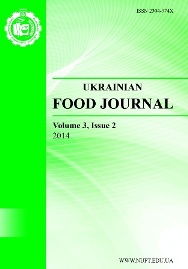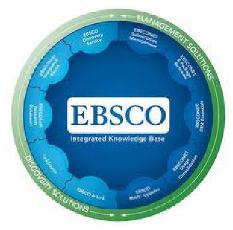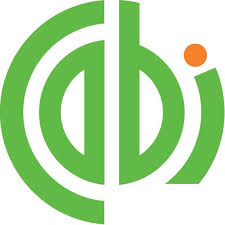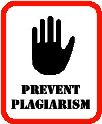Return to Homepage
Ethics, privacy, copyright
Rules and regulations on academic ethics
The Editorial Office strictly follows all rules and regulations recommended for all academic and scientific journals by COPE - the Committee on Publication Ethics (the official web site:https://publicationethics.org/resources).
Inter alia, we would like to pay the attention of all our authors (especially potential ones) as well as the attention of all our reviewers to the following regulations of COPE which we treat as the most essential for our everyday activities
- All editors, from editor in chief to managing and guest editors, are responsible for guaranteeing all authors a reasonable balance between the freedom of expression on the one hand and academic integrity on the other
- At any point of time the authors of the already published articles have the right to request a retraction, publish an apology, clarification and/or correction. The managing editor is expected to support this intention of the authors, however, they may also request additional explanation before publishing such information.
- Editors are responsible for determining whether a potential submission really fits the journal’s scope and framework. The decision that the text does not fit either of them should be delivered directly to the author(s) together with the explanation why so and (optional) recommendation on alternative publication opportunities.
- Editors are responsible for explaining double-blind peer-review procedures to both authors and independent reviewers. All reviewers are supposed to get regular (at least once a year) email notifications with reminders and updates on the related rules and procedures
- Editors are responsible for annual revision of internal academic publishing rules and double-blind peer-review standards
- New editors do not have the right to reverse the decision of previously employed editors, the only exception being an external complaint filed regarding plagiarism or other academic misconduct.
- Editors are responsible for double confidentiality and proper encoding of all texts before they are being sent for blind review
- Articles containing criticism of previously published works (in this journal or elsewhere globally), encouraging scientific debate and/or presenting negative results should be treated equally to regular articles describing authors’ original results. Articles of this category should be also subject to standard double-blind peer-review.
- In case the editors have detected plagiarism and have sufficient evidence to prove it - they have the right, officially or independently, to contact the author’s employer, the Ministry of Education in the related country or other regulatory authority so that to report the case of plagiarism.
- If the case of plagiarism has been reported externally, the editors are expected to fully cooperate on it and provide all necessary evidence they have, with the only exception - the names of the blind reviewers involved in this case.
- Editors are seen as responsible for informing international databases and online libraries if there is a case of retraction. Editors, however, cannot be responsible for the timing of updates in the involved databases and libraries.
- This journal restrains from all advertising activities as such and concentrates on publishing activities. In exceptional cases advertisement can be published though. Published advertisement is supposed to be directly related to academic research, higher education and conferences within the scope of the journal.
- All situations presented as the conflict of interests should be resolved according to COPE regulations. In such situations editors (or publishers on their behalf) are expected to find a similar case among those described on the official site of the COPE and act accordingly.
Editorial privacy policy. GDPR compliance
Editorial Board and editorial office are strongly committed to maintain trustful relations with all authors and all reviewers.
In May 2018 we updated our internal rules and code of conduct so that to comply fully with the acting GDPR policies.
The core provisions of the editorial privacy policy are the following:
- Editors which are in direct communication with authors, current and/or potential, are responsible for keeping all personal data of the latter strictly confidential.
- The Editorial Board and the editorial office should not use any personal data provided by authors and reviewers for private purposes, including those of solely research/academic nature (customer survey or marketing research, for example)
- If the Board or the editorial office plans to conduct a survey among authors and/or reviewers, individuals participating in it must be informed in advance and must be asked for a signed permission.
- The Board and/or the editorial office is free to share personal information on the authors strictly in one case - when plagiarism has been detected and there is an ongoing formal investigation launched by a third party.
- Authors’ work affiliation and contact email are published on the introductory page of each article. This data is considered to be open-access. If an author objects to have their email published - they should inform the editorial office about this once their text has been approved for publishing (blind review results are available).
- Authors’ job affiliation is considered globally as being integral part of articles’ indexation in international databases, therefore, this sort of information is treated as open-source data and all authors are encouraged to provide their formal affiliation in the course of texts’ submission.
- The Editorial Board and the editorial office will never share personal contact information (telephone numbers, emails, skype name etc.) with any third parties, private or business.
- The minimum term of any personal data retention is 1 calendar year since the day of the first contact. The editors maintain the right to delete any personal data on the authors and/or reviewers earlier than 1 year if the text has not been approved for publication (reviewer is not cooperating with the editorial office anymore).
- If any individual has received an email from the editorial office due to technical error or human mistake (typo in an email address, for example), we ask them to delete this email as soon as possible and notify the sender as soon as possible.
- If you want all your personal data be deleted from our internal editorial records - please, contact our managing editor via email.
Copyright and Open Access License
Authors submitting articles for publication warrant that the work is not an infringement of any existing copyright and will indemnify the publisher against any breach of such warranty. For ease of dissemination and to ensure proper policing of use, papers and contributions become the legal copyright of the publisher unless otherwise agreed.
The following license will apply to the article: CC BY
The CC BY license lets others distribute, remix, tweak, and build upon your work, even commercially, as long as they credit you for the original creation. This is the most accommodating of licenses offered. Recommended for maximum dissemination and use of licensed materials.
The publisher will apply the Creative Commons Attribution Works 3.0 Unported License (CC-BY) to the Article for the purposes of publication in the journal on an Open Access basis. For further information, see the Open access options page. The full details of the license are available at:
http://creativecommons.org/licenses/by/3.0/legalcode











